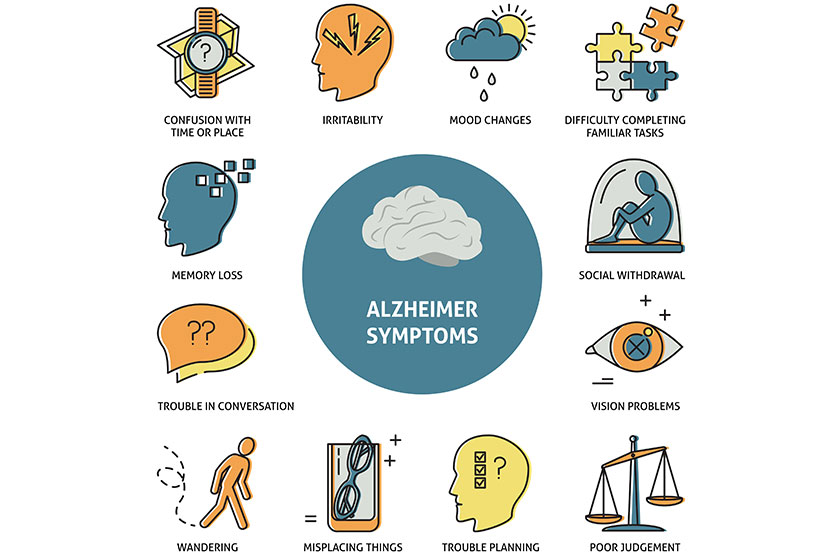Memory loss that affects how we carry out our day-to-day activities may be a sign of Alzheimer’s or other forms of dementia. Alzheimer’s is a disease that affects the brain. It causes gradual deterioration in thinking, memory, and reasoning skills. There are several early symptoms of Alzheimer’s that you can look out for in your older loved one that you should not ignore to get your loved one the treatment they need.
Memory Loss That Disrupts Daily Life
One of the most common signs of the early stage of Alzheimer’s disease is forgetting information that has just been learned. Others include forgetting important events or dates, asking the same questions repeatedly, and increasingly depending on memory aids or loved ones for things that they used to take care of themselves.
Challenges in Solving Problems or Planning
Some people who live with dementia may experience changes in their ability to create and follow a plan or work with numbers. They may have problems keeping track of monthly bills or following a familiar recipe. They may also face difficulty in concentrating and take way longer to complete tasks than they did before.
Difficulty in Completing Familiar Tasks
People suffering from Alzheimer’s usually find it difficult to complete daily tasks. At times, they may also have trouble driving to a familiar location, remembering the instructions of a game they used to play or organizing a grocery list.
Confusion with Place or Time
Those who suffer from Alzheimer’s can lose track of the date and time, seasons, and the passage of time. They may experience difficulty in understanding something if it does not happen immediately. Sometimes they may also forget where they are and how they got to be there.
Trouble Understanding Spatial Relationships and Visual Images
For some people, experiencing problems with their vision may be a sign of Alzheimer’s. This may in turn lead to difficulty in reading or balance. They may also face trouble determining color or contrast and judging distance which eventually cause problems with driving.
New Problems with Words in Writing or Speaking
Patients suffering from Alzheimer’s may also find it hard to join or follow a conversation. They may stop in the middle of a sentence and have no idea how to continue. They may also repeat themselves halfway through and struggle with vocabulary. Some may also use the wrong name or have trouble naming a familiar object.
Misplacing Things and Losing The Ability to Retrace Steps
A person living with Alzheimer’s disease may start to place things in unusual places. They may misplace things and not be able to retrace their steps to locate them again. The person may also start accusing others of stealing especially when their Alzheimer’s starts to progress.
Decreased or Poor Judgment
People with Alzheimer’s may start to experience changes in their decision-making or judgment. They will not be able to handle money wisely or pay less attention to their personal hygiene and grooming.
Seeking Professional Advice
Once you have started noticing the above mentioned signs or symptoms, seek professional advice from a medical practitioner to discuss the next course of action for your loved one with Alzheimer’s. Early treatment can help you better manage their illness as a caregiver to handle their overall well-being.







